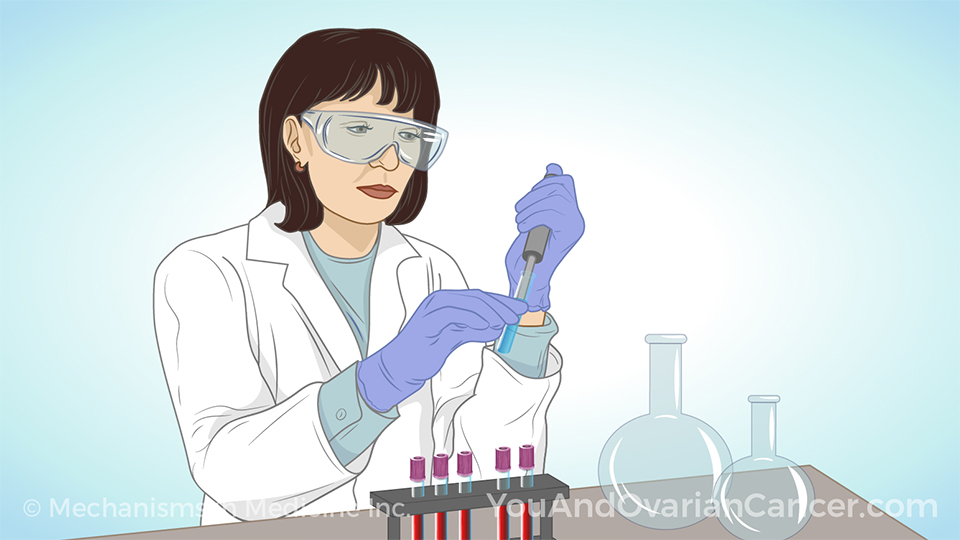
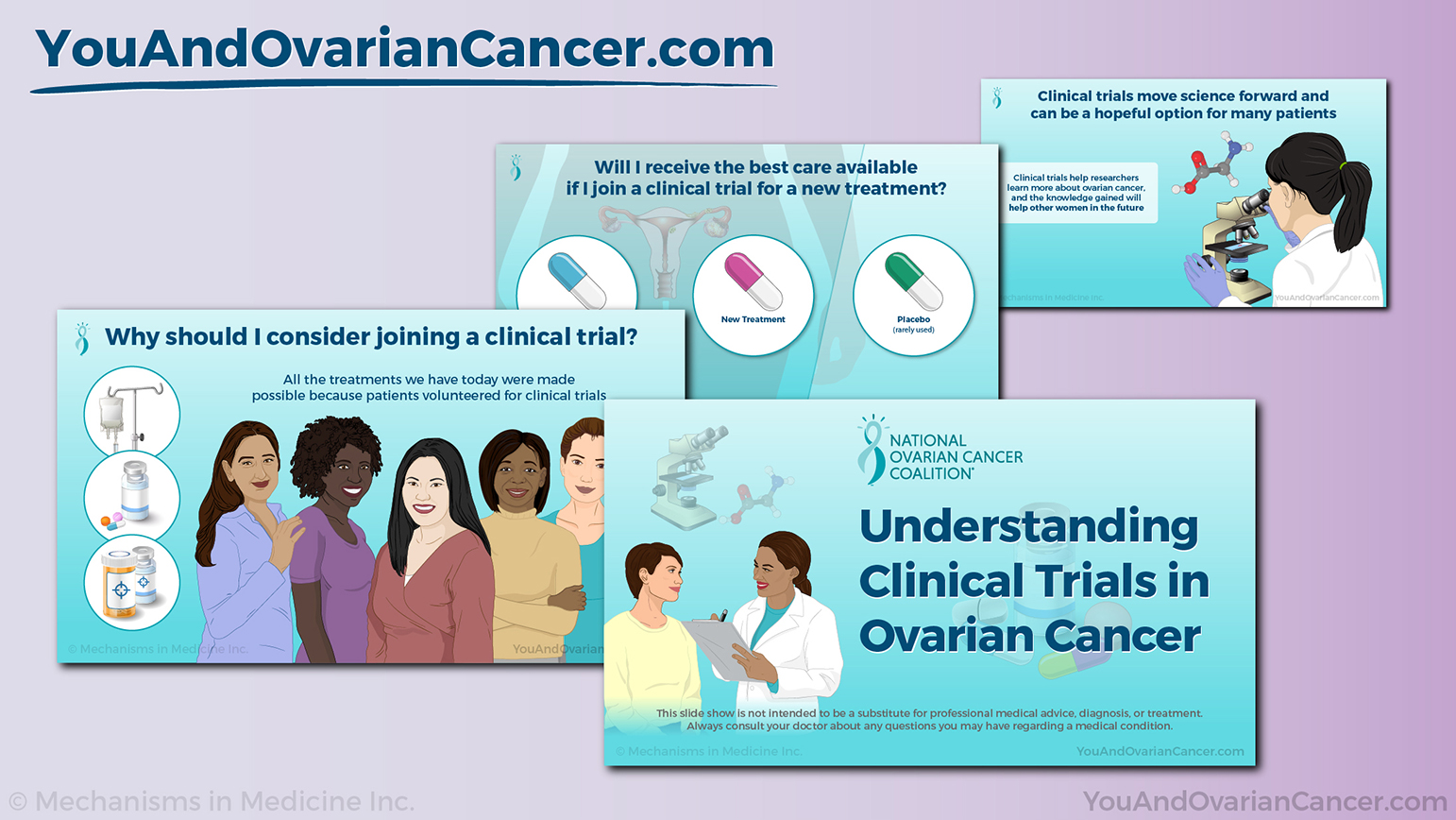
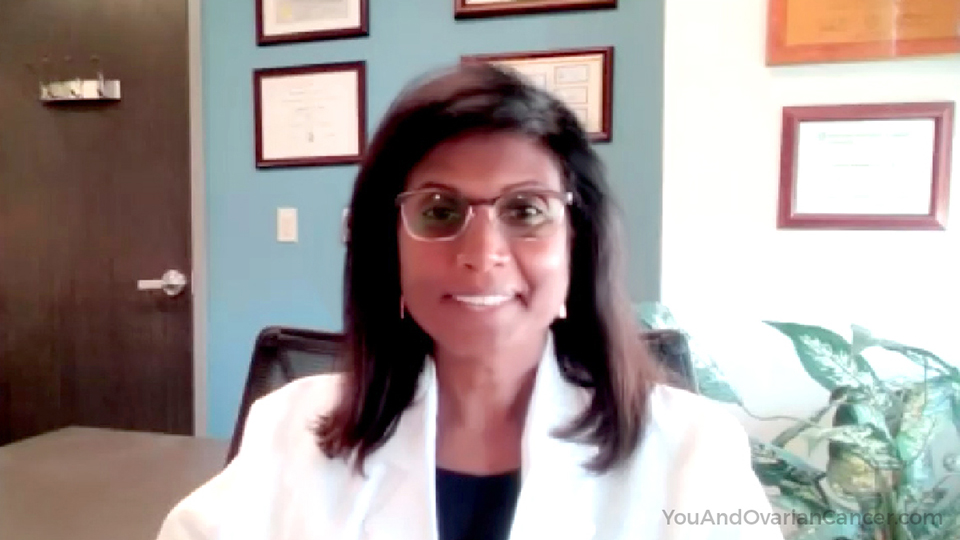
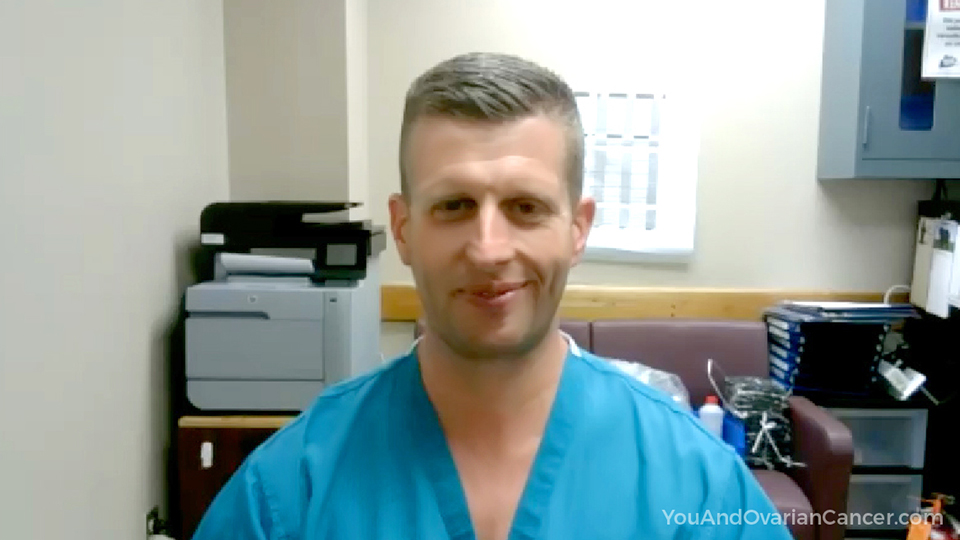

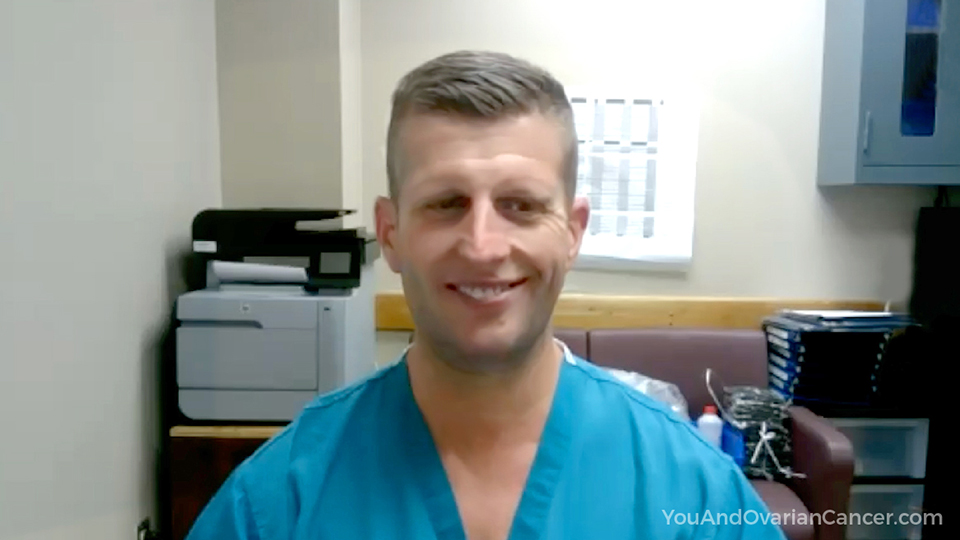
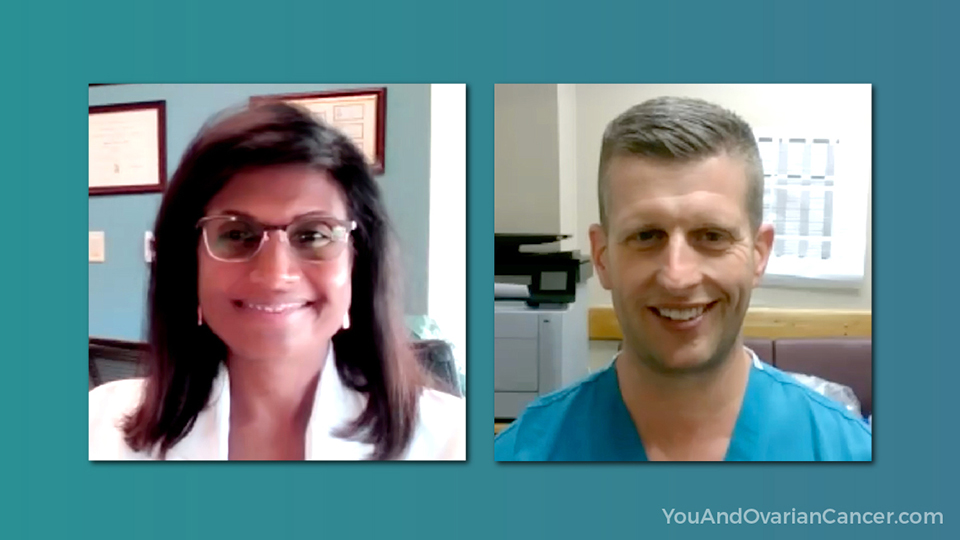
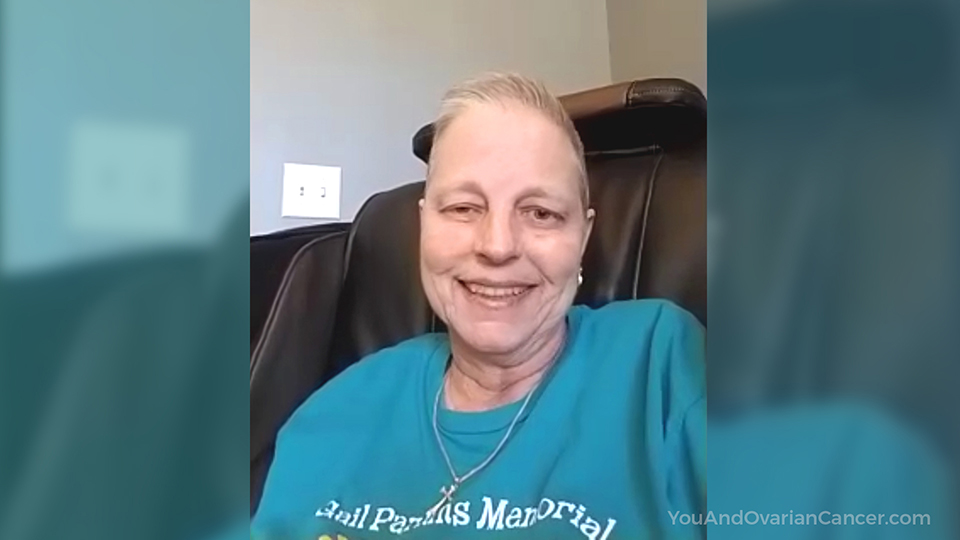
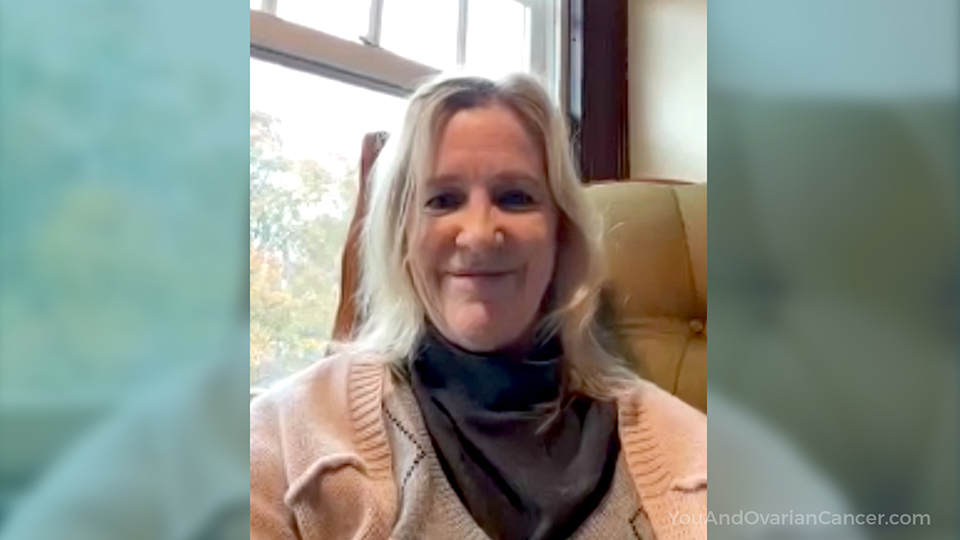
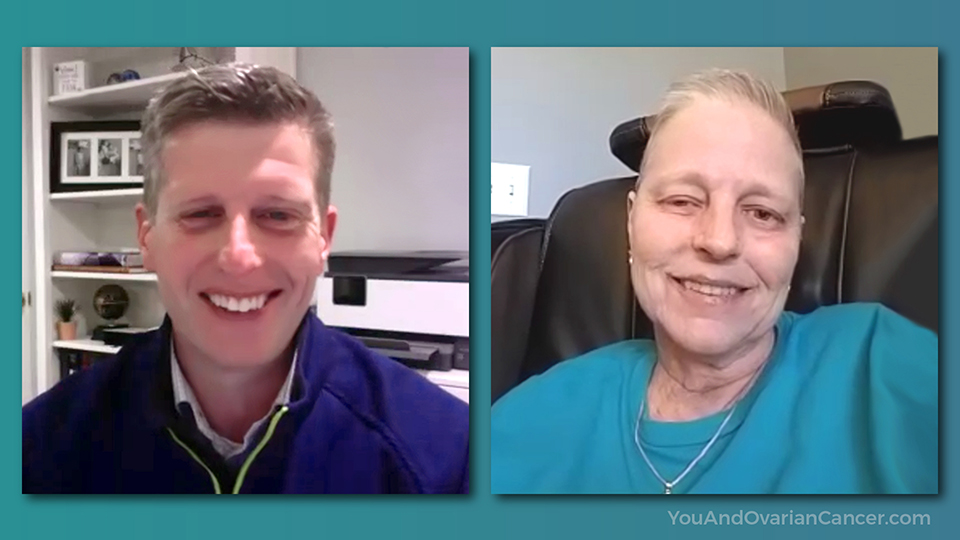
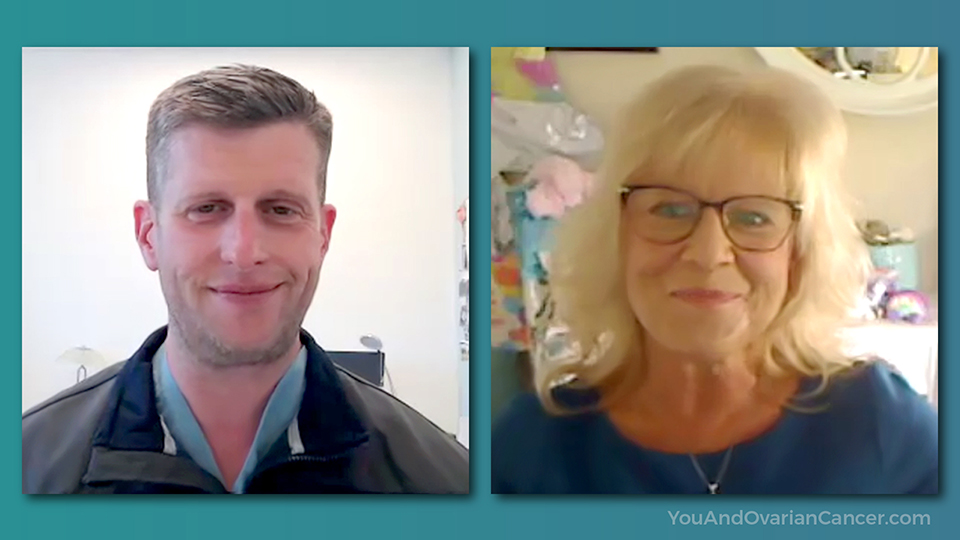
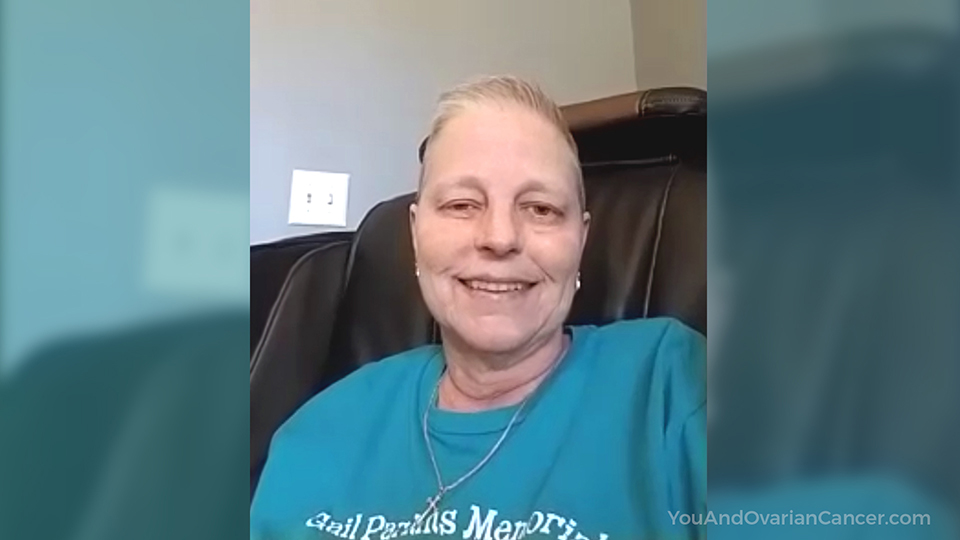
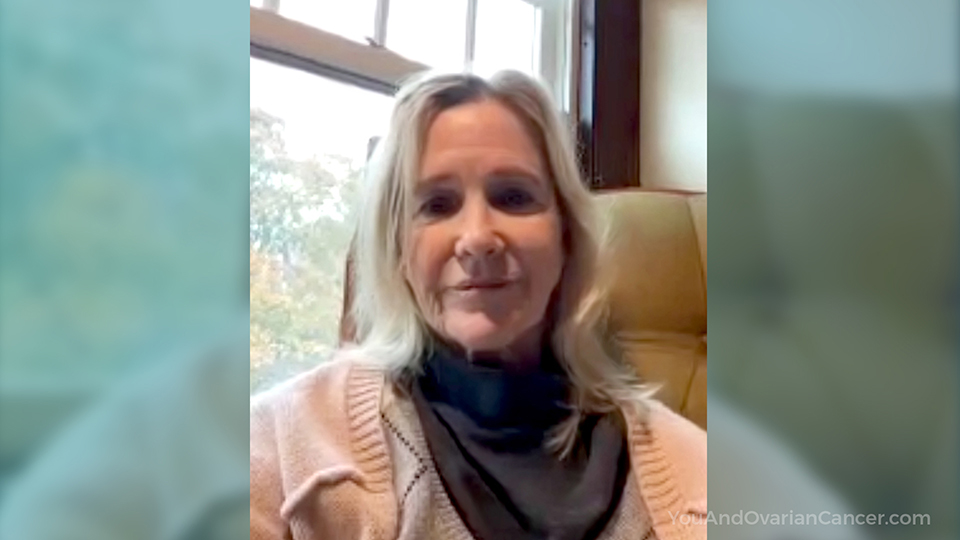
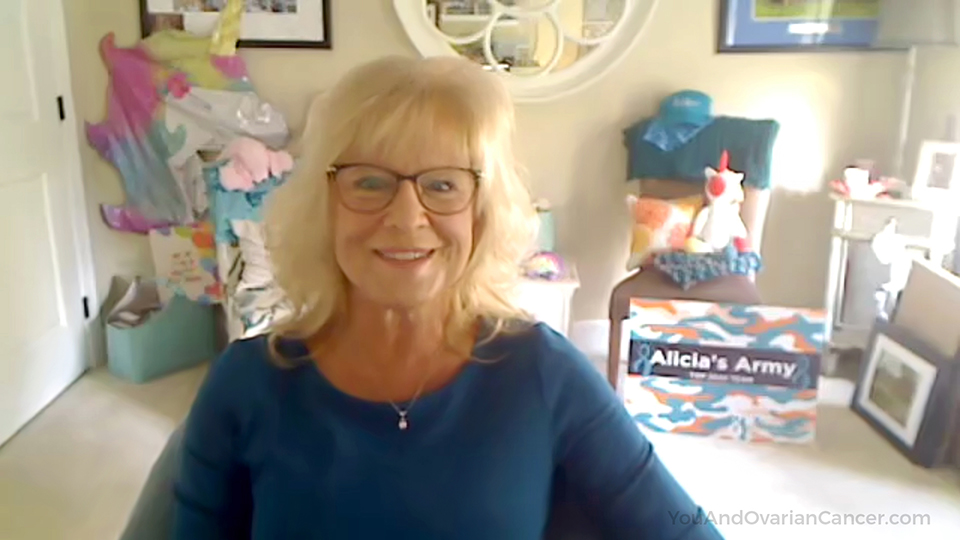




Slide Show - Understanding Clinical Trials in Ovarian Cancer
Your feedback is important to us! We will use your feedback to develop future areas of content about ovarian cancer which will help other patients, caregivers and families.




































Understanding Clinical Trials in Ovarian Cancer
*Please note: This slide show is not intended to be a substitute for professional medical advice, diagnosis, or treatment. Always consult your doctor about any questions you may have regarding a medical condition.
What is a clinical trial?
Clinical trials are research studies in which people volunteer to find ways to improve health, answer scientific questions and find better ways to prevent, diagnose or treat cancer.
They help us develop safe and effective medicines for those who need them.
Ovarian cancer clinical trials are important
Clinical trials are needed to develop screening tests and better treatments for ovarian cancer. Today, there is no reliable screening test to find ovarian cancer early.
Most ovarian cancers are found in later stages, after they have spread to other organs. This makes them harder to treat. Better treatments are needed to make sure women have the best chance at surviving.
How are clinical trials done? Clinical trial phases
Clinical trials are done in 4 phases. Each phase studies safety and side effects.
In Phase 1 trials, a small group of volunteers tests a treatment to learn how safe it is, at what dose, and what the side effects are.
In Phase 2, a larger group tests the treatment's safety and effectiveness.More on how clinical trials are done
In Phase 3, many volunteers take the treatment to confirm its effectiveness and compare it to current treatments.
If the treatment proves to be safe and effective and is approved, the treatment may be given to the public.
In Phase 4 clinical trials, researchers collect ongoing information about the approved treatment.
How are clinical trials monitored with patient protections for ethical and safe practice?
Clinical trials must be approved by a group called an Institutional Review Board before volunteers can join.
During a trial, study monitors check that the research is done correctly and that your privacy and safety are protected.
A trial may be stopped if problems are found.
What research is being done on ovarian cancer?
There are hundreds of ovarian cancer clinical trials in the United States. Researchers are studying everything from risk and early detection to treatment and beyond.
You can learn more at cancer.org.
Who can join a clinical trial for ovarian cancer treatment?
Many different people take part in clinical trials. Some studies include healthy volunteers, while other studies include patient volunteers.
To join a clinical trial for ovarian cancer treatment, ask your doctor if you qualify. The trial staff will consider your age, previous treatments, type of ovarian cancer and stage of cancer.
Why should I consider joining a clinical trial?
There are many reasons to join a clinical trial. All the treatments we have today were made possible because patients volunteered for clinical trials.
Only around 5 in every 100 people with cancer join a trial.
Many people are willing to join but may not know how to find a trial or what to ask.
How do I find ovarian cancer clinical trials?
If you are interested in joining a trial, speak to your medical team. They can help you find a trial right for you.
You can also search for clinical trials by visiting ClinicalTrials.gov or find more information by visiting the National Ovarian Cancer Coalition at ovarian.org.
Can I learn about the trial before deciding to join?
Learning more about a trial before joining is important. Talk with your doctor and study team to learn who may join the trial you are interested in as well as the research plan, risks, and benefits. Also, ask any questions you have.
If you decide to join, you will sign a statement agreeing to be in the trial. This is called informed consent.
Will I receive the best care available if I join a clinical trial for a new treatment?
If you join a clinical trial for an ovarian cancer treatment you will receive the best care available. You will get either the standard treatment, called the standard of care, or the new treatment being studied.
You may have heard the term placebo. However, these are rarely used in trials of new cancer treatments.
Once I join a trial, can I change my mind?
You can leave the clinical trial at any time if you change your mind.
You will still receive the usual standard of care if you leave the trial.
How will I benefit from being in a clinical trial?
There are many benefits to being in a clinical trial. You may receive more regular monitoring by experts, less rushed appointments, and more time for questions. Additionally, people may feel they are taking a more active part in their care.
Are there risks to being in a clinical trial?
Clinical trials do have some risks. You can learn about these before you decide to join. Risks may include side effects or not getting the results you hoped for.
Clinical trials move science forward and can be a hopeful option for many patients
Clinical trials play an important role in moving science forward and can be a hopeful option for many patients with ovarian cancer.
Trials help researchers learn more about ovarian cancer, and the knowledge gained will help other women in the future.
Your feedback is important to us! We will use your feedback to develop future areas of content about ovarian cancer which will help other patients, caregivers and families.


















This educational activity has been developed by the National Ovarian Cancer Coalition in collaboration with Mechanisms in Medicine Inc.
This activity is supported by educational grants from:
Alkermes plc, AstraZeneca Pharmaceuticals LP, Clovis Oncology, Inc., Eisai Inc., Foundation Medicine, Inc., Genentech, a Member of the Roche Group, GSK, ImmunoGen, Inc., Merck & Co, Inc., Novartis, Novocure Inc., Pfizer, Inc.
Copyright © Mechanisms in Medicine Inc. All rights reserved. Mechanisms in Medicine Inc. does not provide medical advice, diagnosis, or treatment.
This website is part of the Animated Patient® series developed by Mechanisms in Medicine Inc., to provide highly visual formats of learning for patients to improve their understanding, make informed decisions, and partner with their healthcare professionals for optimal outcomes.